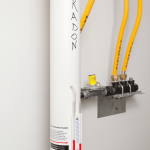It is true that the consumer demands determine the market, but beverage processing companies also have the ability to create new and unique products that appeal to consumers.
Over the last few years, there has been a marked increase in beverages, both alcoholic and non-alcoholic, that offer additional benefits besides something good to drink. Some of these changes, including using organic and non-GMO ingredients, or offering beverages such as kombucha, appeal to a new and growing target market of health-conscious individuals.
These trends are continuing, with an increased focus on beverages and beverage processing options that are good for individuals but also good for the environment. This includes using plant-based ingredients for more than just spirits, beer, and wine, but also for carbonated water and for lightly carbonate fruit types of drinks.
Green Packaging
Green or environmentally-friendly packaging options are another critical factor for beverage processing. Green packaging or sustainable packaging options include the use of aluminum bottles and cans, or the use of rPET (recycled polyethylene terephthalate), which is made from recycled PET products. The use of rPET creates a continuous cycle of reuse, eliminating the plastic in landfills and oceans and also reducing the need for the production of new plastics.
Unique Flavors and Combinations
Drink or beverage mashups are increasingly popular. This includes products such as coffee-infused beers or fruit and herb infusions in water, carbonated water, beers, wines, and spirits.
It also includes unusual combinations or unique types of ingredients that not only create a distinctive drinking experience, but that also involve challenges in the actual beverage processing to create the ideal recipe and process.








